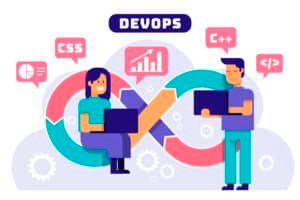Hey there, tech enthusiasts! Have you ever wondered about the magic behind the scenes of your favorite software? Hold onto your hats because we’re diving headfirst into the captivating world of open-source software movements!
What Exactly is Open Source Software?
Let’s start with the basics. When we talk about open-source software, we’re referring to programs whose source code is freely available for anyone to inspect, modify, and distribute. It’s like a recipe open to the public, inviting chefs from all over to add their flair and ingredients.
The Power of Collaboration
One of the most fascinating aspects of the open-source ethos is its emphasis on collaboration. Picture a bustling marketplace where developers, coders, and enthusiasts gather to share ideas, solve problems, and build upon each other’s work. It’s a true melting pot of creativity and innovation.
Driving Innovation Forward
In the fast-paced world of technology, innovation is the name of the game. And guess what? Open-source software movements are leading the charge. These movements fuel a continuous cycle of improvement and discovery by breaking down barriers and encouraging transparency.
Empowering Communities
But it’s not just about the code. At its core, the open-source philosophy is about empowerment. It empowers individuals and communities to take ownership of their technology, to customize it according to their needs, and to contribute back to the collective pool of knowledge.
The Rise of Open Source Projects
Open-source projects have become staples of the digital landscape, from the ubiquitous Linux operating system to the versatile Apache web server. These projects showcase the power of collective effort and serve as shining examples of what can be achieved when people come together for a common cause.
Navigating Challenges
Of course, no journey is without its challenges. Open-source software movements must navigate licensing, governance, and funding issues. But with a dedicated community and a shared vision, these challenges are mere bumps in the path to progress.
Looking Towards the Future
So, what does the future hold for open-source software movements? If history is any indication, it’s a future filled with endless possibilities. As technology continues to evolve, so will how we collaborate, innovate, and empower one another.
In conclusion, the world of open-source software movements is a vibrant ecosystem teeming with creativity, collaboration, and boundless potential. So whether you’re a seasoned developer or a curious observer, there’s never been a better time to join the movement and see where it takes you.
Magque is your go-to destination for all things open source. From in-depth articles to community forums, we’ve got you covered every step of the way. Join us as we explore the exciting world of open-source software movements and embark on a journey toward a brighter, more connected future.
FAQs
Q1. What exactly is open-source software?
Open-source software refers to programs whose source code is freely available for anyone to inspect, modify, and distribute. This means that users can customize the software according to their needs and contribute improvements to the community.
Q2. What are some examples of popular open-source projects?
Some well-known open-source projects include the Linux operating system, the Apache web server, the Mozilla Firefox web browser, and the WordPress content management system. These projects have gained widespread adoption and have played a significant role in shaping the digital landscape.
Q3. How do open-source software movements promote collaboration?
Open-source software movements foster collaboration by providing developers, coders, and enthusiasts a platform to share ideas, contribute code, and collaborate on projects. This collaborative approach leads to faster innovation, higher-quality software, and a sense of community among participants.
Q4. What are the benefits of using open-source software?
Using open-source software offers several benefits, including cost savings, flexibility, security, and transparency. Because the source code is freely available, users can customize the software to suit their needs without being locked into proprietary solutions. Additionally, the open nature of the code allows for greater transparency and accountability, leading to improved security and reliability.
Q5. How can I get involved in open-source software movements?
Regardless of your technical expertise, there are many ways to get involved in open-source software movements. You can start by participating in community forums, contributing code to projects, reporting bugs, writing documentation, or even just spreading the word about open-source software to others. Many open-source projects welcome contributions from newcomers and offer resources to help them get started.
Read Also This:- Must-Have Software for Small Businesses













